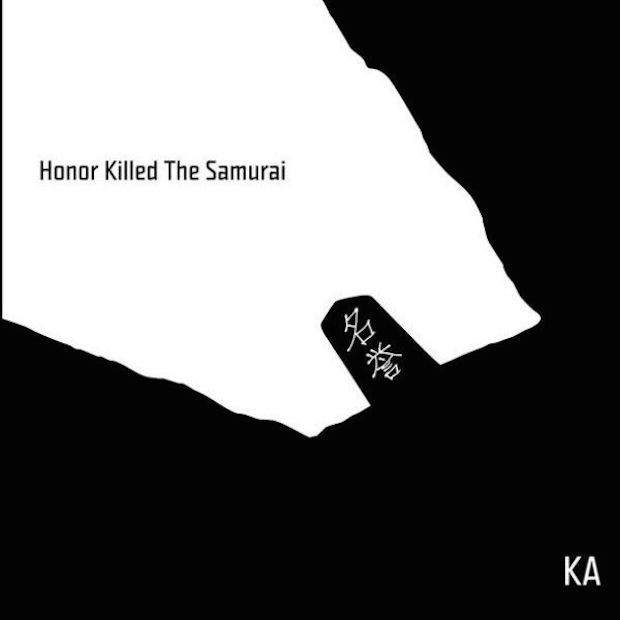HONOR KILLED THE SAMURAI by Ka

Genre: East Coast Hip Hop
Favorite Tracks: “$,” “Illicit Fields,” “I Wish (Death Poem)”
If there’s anything to say about Ka, it’s that he’s confident in who he is. The 44-year-old Brooklyn rapper has always bided his time, appearing on scattered tapes in 1994 from groups no one has ever heard of (Natural Elements and Nightbreed, if you care) and then disappearing for nearly 14 years, rearing his head again in 2008 with a solo effort and an appearance on a late-game GZA tape. Since a Fantano boost in 2013 of THE NIGHT’S GAMBIT and a collaboration with underground producer Preservation on 2015’s DR. YEN LO, the online blogosphere was more than ready to receive HONOR KILLED THE SAMURAI with open arms. Reaching a conclusion on this release is tricky, as it possesses nothing close to universal appeal. However, although it’s an acquired taste, there is a certain stately charm to it that is enjoyable in small doses.
From the opening notes of “Conflicted,” you can tell that Ka has no concerns with adapting to the times (except on album lowpoint “Just,” which proves that he has no business doing so). Starting off with a sample of Japanese dialogue from a jidaigeki film and continuing this trend throughout, it’s clear that Ka is a dedicated acolyte of the Wu-Tang Clan’s production and principals, as all but two tracks feature brooding acoustic bass, smoky cymbal palettes, and other accents of jazz instrumentation. However, the RZA’s early production was so effective because it managed to take classic jazz and soul tracks generally regarded as toothless and warp them into paranoid, absolutely destructive hardcore hip hop backings. Ka, on the other hand, has no such intentions of aggression or anger. And therein lays the acid test.
Ka is by far the most ponderous, deliberate rapper I’ve ever heard. Rarely attaining anything more than a stoned, conversational tone (and when he does come across bright-eyed on “Finger Things / Tamahagene,” the album soars with him), listening to Ka requires a sense of patience and investment that many modern listeners simply no longer possess. Although his tales of the hardships of growing up on the streets of New York are always verbose, narratively sound, and appropriately grimy, there is so much space left in between his careful word selection that it can occasionally become grating to be offered the more minimal selections. Tracks with more fleshed-out production (“Mourn At Night”) are far more palatable than ones where the samples are as laconic and glacial as Ka’s delivery (“Ours”). However, what HONOR KILLED THE SAMURAI does excel at is presenting sampled jazz backings in the crispest, clearest form you’ve ever heard (“That Cold and Lonely,” “Illicit Fields,” “I Wish (Death Poem)”), often blurring the lines between studio and live music. Ka consistently conjures the images of a claustrophobic underground jazz club, smoke heavy in the air, with a beat poet well into his cups spinning cautionary yarns of life on the streets.
HONOR KILLED THE SAMURAI has composure. HONOR KILLED THE SAMURAI has class. But what HONOR KILLED THE SAMURAI does not have is any sort of sense of fun. That’s not to say that hip hop can only succeed in its trap and pop rap manifestations, but it is to say that a release this careful and plodding can’t help but feel anachronistic. Hip hop heads looking for something “intellectual” will ensure that this will make its way onto many year-end lists, but whereas something like TO PIMP A BUTTERFLY is about as powerful and conscious as they come, it still manages to incorporate an engaging tapestry of styles, influences, and themes to make a larger social statement. HONOR KILLED THE SAMURAI, on the other hand, finds a groove and rides it mercilessly into the sunset. However, considering Ka’s constant lyrical reminders of how he overcame his upbringing, perhaps there’s a larger statement hear about how someone so reticent in their preferences spells out their own death sentence. In any case, I can’t say I’ll be tuning in again.
Verdict: Do Not Recommend



